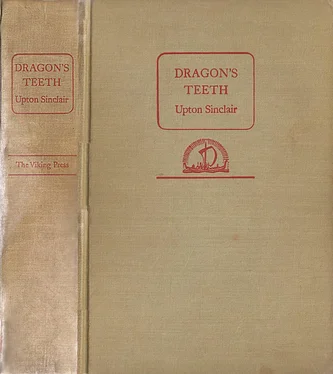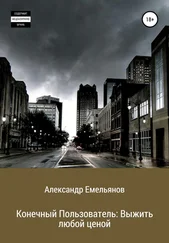Пользователь - o 3b3e7475144cf77c
Здесь есть возможность читать онлайн «Пользователь - o 3b3e7475144cf77c» весь текст электронной книги совершенно бесплатно (целиком полную версию без сокращений). В некоторых случаях можно слушать аудио, скачать через торрент в формате fb2 и присутствует краткое содержание. Жанр: Старинная литература, на русском языке. Описание произведения, (предисловие) а так же отзывы посетителей доступны на портале библиотеки ЛибКат.
- Название:o 3b3e7475144cf77c
- Автор:
- Жанр:
- Год:неизвестен
- ISBN:нет данных
- Рейтинг книги:4 / 5. Голосов: 1
-
Избранное:Добавить в избранное
- Отзывы:
-
Ваша оценка:
- 80
- 1
- 2
- 3
- 4
- 5
o 3b3e7475144cf77c: краткое содержание, описание и аннотация
Предлагаем к чтению аннотацию, описание, краткое содержание или предисловие (зависит от того, что написал сам автор книги «o 3b3e7475144cf77c»). Если вы не нашли необходимую информацию о книге — напишите в комментариях, мы постараемся отыскать её.
o 3b3e7475144cf77c — читать онлайн бесплатно полную книгу (весь текст) целиком
Ниже представлен текст книги, разбитый по страницам. Система сохранения места последней прочитанной страницы, позволяет с удобством читать онлайн бесплатно книгу «o 3b3e7475144cf77c», без необходимости каждый раз заново искать на чём Вы остановились. Поставьте закладку, и сможете в любой момент перейти на страницу, на которой закончили чтение.
Интервал:
Закладка:
serene, magnificent in a long sable coat, she was perfect evidence of the wisdom of guaranteeing
large incomes to a few chosen individuals, in order that they may be free to attend fashion
shows and constitute themselves models of elegance and refinement.
VIII
"Oh, by the way," said the daughter of Jerusalem, all at once; "I understand that you were in
Germany not long ago."
"Just before Christmas," replied Lanny.
"I do wish you would tell me about it. It must be dreadful."
"In some ways, and for some people. Others hardly notice it."
"Oh, Monsieur Budd," said Olivie, lowering her voice, "may I tell you something without its
going any farther? I'm really not supposed to talk, but we are all so worried."
"You may be sure that my wife and I will respect your confidence, Madame."
"We have just learned that the Nazis have arrested my Uncle Solomon. You know him,
possibly?"
"I had the pleasure of meeting him at the home of Johannes Robin. Also, I am one of his
depositors in Berlin."
"They have trumped up some charge against him, of sending money out of Germany. You
know, of course, that a banker cannot help doing that; especially a family like ours, doing
business in Austria and Czechoslovakia and Rumania, and so many other countries."
"Of course, Madame."
"We Jews hear the most dreadful stories—really, it makes you quite sick."
"I am sorry to say that many of them are true. They tell you thatsuch things happen in
violent social overturns. But I doubt if the Nazis would do physical harm to a man like your
uncle. They would be more likely to assess him a very large fine."
"It is all so bewildering, Monsieur Budd. Really, my father cannot be sure whether it would
be safe for him to go into Germany to see about it."
"I will make a suggestion, Madame, if you don't mind."
"That is just what I was hoping you might do."
"I ask you to consider it confidential, just as you have asked me. Tell your mother and father,
but nobody else."
"Certainly, Monsieur Budd."
"I suggest their sending somebody to interview General Göring. He has a great deal of
influence and seems to understand these matters."
"Oh, thank you!" exclaimed Olivie Hellstein. "I am so glad I thought to ask you about it."
Irma put in: "Send somebody who is dignified and impressive-looking, and tell him to be
dressed exactly right, and not forget any of the Minister-Prasident General's titles."
IX
Out of duty to the memory of Marie de Bruyne, Lanny made an effort to see her younger
son, but found it impossible. Charlot was meeting somewhere with the leaders of his society,
and the inquiries of strangers were not welcomed. This Tuesday, the sixth of February, was to
be the great night in which all the organizations of the Right in France would "demonstrate"
against the government. Marching orders had been published in all the opposi tion papers,
under the slogan: "À bas les voleurs! Down with the thieves!" At twilight Charlot would
emerge from his hiding place, wearing his tricolor armband with the letters F.C.F., which meant
that he was a Son of the Cross of Fire. He would be singing the Marseillaise; an odd
phenomenon, the battle-song of one revolution becoming the anti-song of the next! In between
singing, Charlot and his troop of patriotic youths would be yelling the word
"Démission!"— which meant the turning out of the Daladier government. Less politely they
would cry: "Daladier аи poteau!" meaning that they wished to burn him alive.
Lanny drove his wife to the Chamber, going by a circuitous route because the Pont de la
Concorde was blocked by gendarmes. For an hour the couple sat in the public gallery and
listened to an uproar which reminded Lanny of what he had heard on the floor of the New
York Stock Exchange at the height of the panic. Daladier couldn't make his speech; his political
enemies hurled at him every abusive name in the extensive French vocabulary, while at the
same time the Communists sang the Internationale.
When this became monotonous, the Americans went out to have a look at the streets. They
couldn't see much from a car, for fear of being caught in fighting, and decided that the best
place from which to witness a Paris démonstration was from the windows of their hotel suite.
Robbie, sensible fellow, was in his rooms, talking business with the head of a French building
concern which sometimes bought ascenseurs. The two younger people stood on the balcony of
their drawing-room, which looked over the great Place de la Concorde, brilliantly lighted, and
with an obelisk in the center having floodlights on it. Directly across the Place was the bridge
over the Seine to the Palais-Bourbon, where the deputies met; a building in Roman style with
many tall pillars brightly shining.
There must have been a hundred thousand people in the Place, and more pouring in by every
street. They were trying to get across the bridge, but the police and troops had blocked it with
patrol-wagons. The mob started throwing things, and soon there was a pitched battle, with
charges and counter-charges going on most of the night. The Fascists hurled whatever they
could lay hands on. They pried up stones from the pavement, and tore off the scaffolding from
the American Embassy, which was under repair. The railings of the Tuileries gardens provided
them with an iron missile, shaped like a boomerang and impossible to see in the dark. When the
mounted gardes républicaines tried to drive them off the bridge, charging and striking with the
flat of their sabers, the mob countered with walking-sticks having razor-blades fastened to the
ends, to slash the bellies of the horses. In one attack after another they crippled so many of the
police and gardes that they came very near getting across the bridge and into the Chamber.
So at last shooting began. The street-lights were smashed, and the floodlights on the obelisk
were turned off, so you couldn't see much. An omnibus had been overturned and set afire near
the bridge, but that gave more smoke than light, and it soon burned out. The last sight that Lanny
saw was a troop of the Spahis, African cavalrymen in white desert robes looking like the Ku
Kluxers, galloping up the Champs Elysees and trampling the mob. There came screams directly
under where Irma and Lanny were standing; a chambermaid of the hotel had been shot and
killed on the balcony. So the guests scrambled in quickly, deciding that they had seen enough of
the class war in France.
"Do you think they will raid the hotel?" asked Irma; but Lanny assured her that this was a
respectable kind of mob, and was after the politicians only. So they went to bed.
X
"Bloody Tuesday," it was called, and the Fascist newspapers set out to make it into the
French "Beerhall Putsch." From that time on they would have only one name for Daladier:
"Assassin!" They clamored for his resignation, and before the end of the next day they got it;
there were whispers that he could no longer depend upon the police and the gardes. More
than two hundred of these were in the hospitals, and it looked like a revolution on the way.
There was wreckage all over Paris, and the Ministry of Marine partly burned. Charlot had got a
slash across the forehead, and for the rest of his life would wear a scar with pride. "La
Concorde" he would say, referring to the bridge; it would become a slogan, perhaps some day
Читать дальшеИнтервал:
Закладка:
Похожие книги на «o 3b3e7475144cf77c»
Представляем Вашему вниманию похожие книги на «o 3b3e7475144cf77c» списком для выбора. Мы отобрали схожую по названию и смыслу литературу в надежде предоставить читателям больше вариантов отыскать новые, интересные, ещё непрочитанные произведения.
Обсуждение, отзывы о книге «o 3b3e7475144cf77c» и просто собственные мнения читателей. Оставьте ваши комментарии, напишите, что Вы думаете о произведении, его смысле или главных героях. Укажите что конкретно понравилось, а что нет, и почему Вы так считаете.




